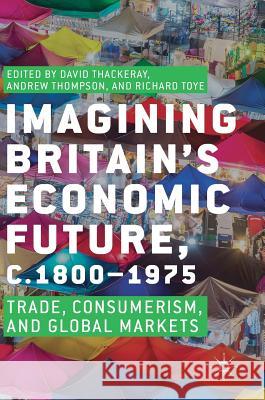Imagining Britain's Economic Future, C.1800-1975: Trade, Consumerism, and Global Markets » książka
topmenu
Imagining Britain's Economic Future, C.1800-1975: Trade, Consumerism, and Global Markets
ISBN-13: 9783319712963 / Angielski / Twarda / 2018 / 308 str.
Kategorie BISAC:
Wydawca:
Palgrave MacMillan
Język:
Angielski
ISBN-13:
9783319712963
Rok wydania:
2018
Wydanie:
2018
Ilość stron:
308
Waga:
0.68 kg
Wymiary:
21.0 x 14.8
Oprawa:
Twarda
Wolumenów:
01
Dodatkowe informacje:
Wydanie ilustrowane











